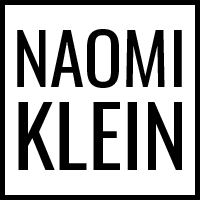One Person's Synergy is a Columnist's Nightmare
September 13th, 2000By Naomi Klein One time, when I was on the phone with Sympatico customer service, I shamelessly abused my privilege as a writer for this newspaper. "Look," I said, "I'm a columnist with The Globe and Mail and I need e-mail access now." Of course, this was an extreme situation: I had tried and retried the connection, reconfigured my settings, reinstalled my modem software, and shut down and restarted my computer 16 times. Only then, when I still couldn't file my column, did I mention The Globe. And let me tell you, things change. I wouldn't dream of threatening journalistic retaliation in exchange for better service, but it seemed to occur to the person to whom I was talking that, if I'm a columnist with The Globe, I might just write one of those columns about Sympatico. And in this purely hypothetical column, I might ask some uncomfortable questions: Why is it that I have to dial long-distance to check my e-mail when I'm outside of Canada—and even when I'm in Vancouver? How come AOL customers are able to make a local call to get on-line in Uzbekistan? And why doesn't the Sympatico toll-free service number work outside...

